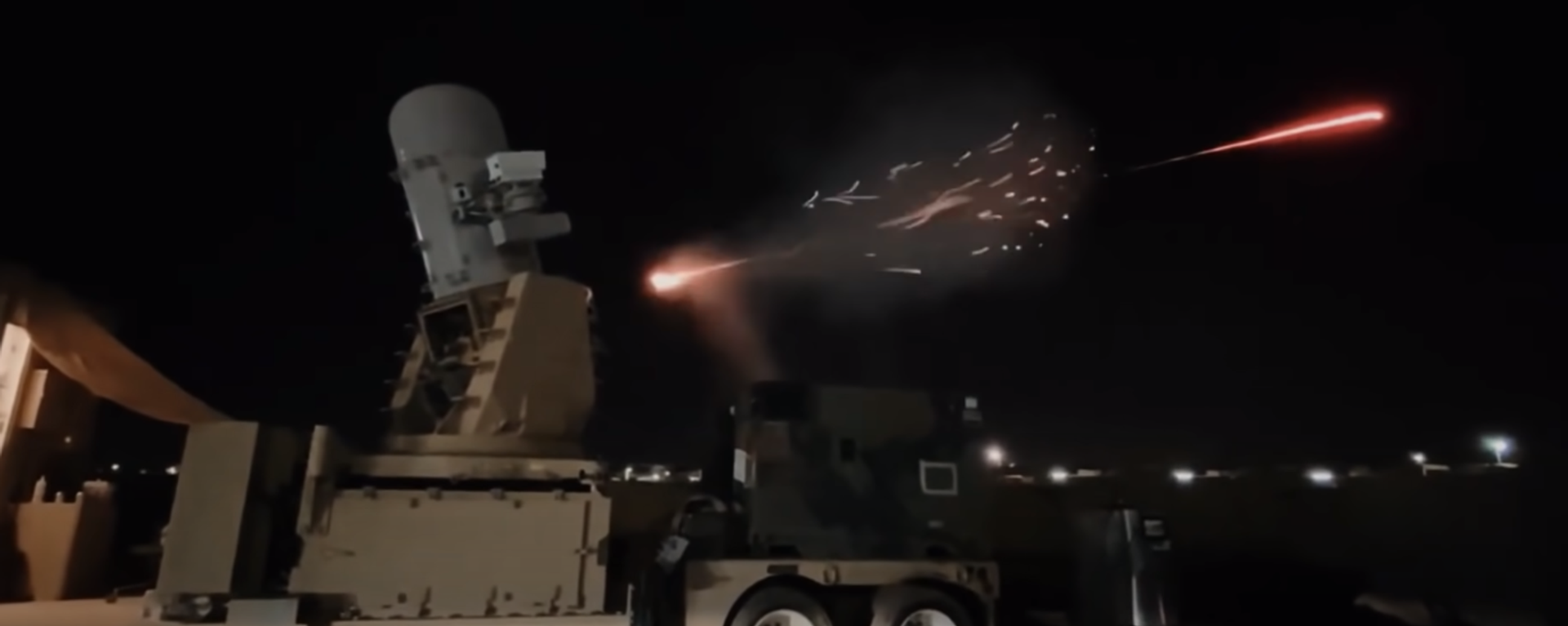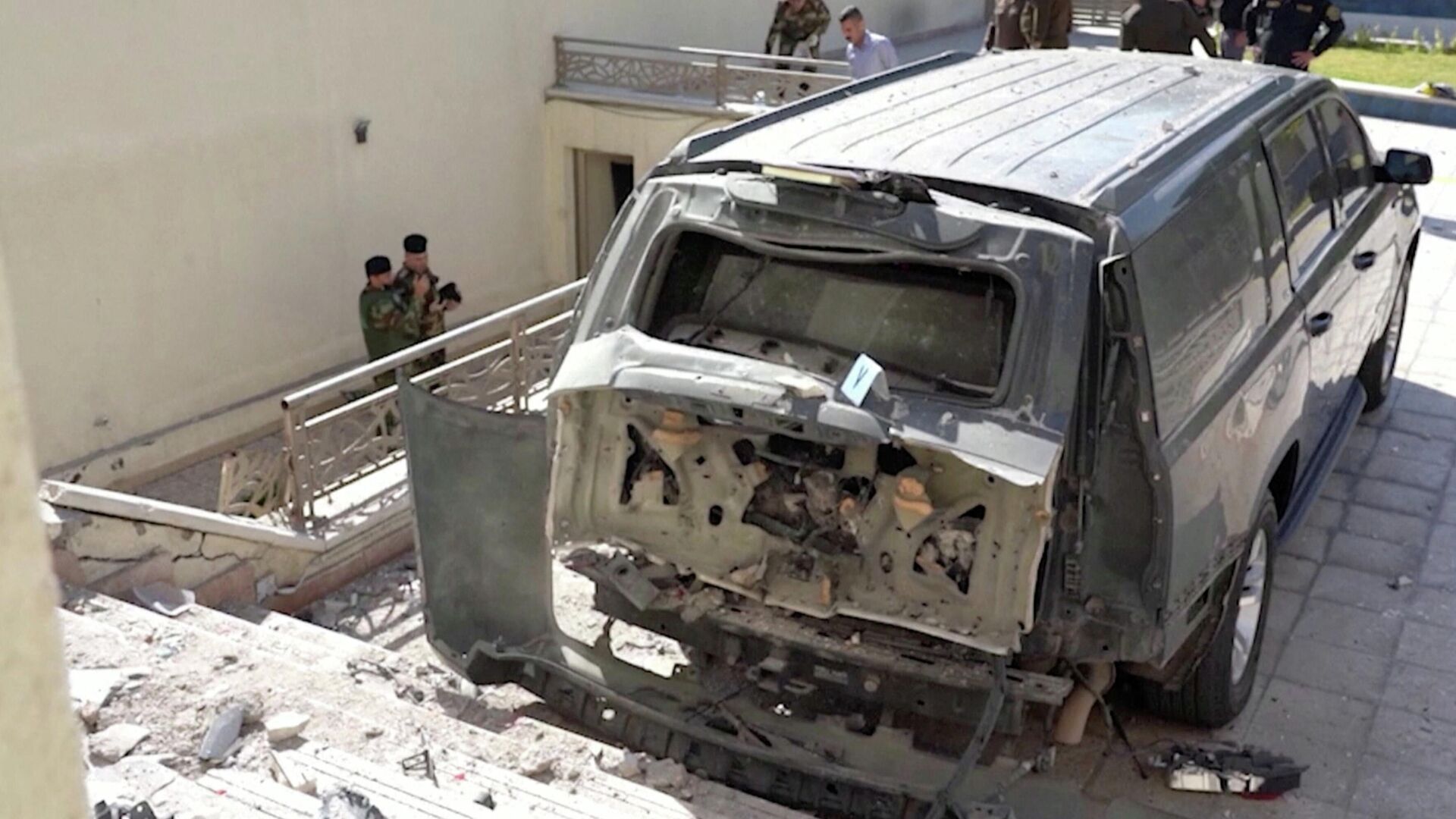https://sputnikglobe.com/20211113/unlikely-that-tehran-was-behind-drone-attack-on-iraqi-pm-us-officials-say-1090715801.html
Unlikely That Tehran Was Behind Drone Attack on Iraqi PM, US Officials Say
Unlikely That Tehran Was Behind Drone Attack on Iraqi PM, US Officials Say
Sputnik International
On November 7, Iraqi Prime Minister Mustafa Al-Kadhimi survived what appeared to be an assassination attempt in which at least two weaponized quadcopter drones... 13.11.2021, Sputnik International
2021-11-13T21:48+0000
2021-11-13T21:48+0000
2023-07-16T05:54+0000
iraq
iran
drones
armed drones
assassination attempt
us
uav
https://cdn1.img.sputnikglobe.com/img/07e5/0b/0d/1090715583_22:0:3574:1998_1920x0_80_0_0_3c2b22c95324f5785d1def33ddf0d8e4.jpg
As Iraqi officials continue to probe the Sunday assassination attempt, current and former US officials are pushing back on the possibility that the attack was ordered by the Iranian government. Speaking to NBC News this week, former US Ambassador to Iraq Douglas Silliman argued that it is extremely unlikely that Tehran was behind the attack on Kadhim, as such a move would likely trigger a chain of undesired violence on its border. "They simply want an Iraq that is off balance enough that they can have significant influence, both political and economic," he noted. An unnamed senior US defense official asserted to the outlet that Tehran has failed to maintain its regional influence since the January 2020 assassination of General Qasem Soleimani, Quds Force commander of the Islamic Revolutionary Guard Corps (IRGC). Norm Roule, who served in the US Central Intelligence Agency (CIA) for 34 years, proclaimed that this is a "problem for everyone," as competition among militias in the region will likely continue amid a "political evolution" in Tehran. Roule suggested that Iraqi and Western forces should improve their intelligence on "Iran's proxies in Iraq" if the US wants to protect top Iraqi officials. The former CIA official also asserted that the group behind the attack may have been "created, trained, sustained, and [guided]" by Tehran. "If we are to be committed to Iraq's stability and preventing similar attacks in the future, the US and other partners must improve their understanding of militia plans and intentions," Roule asserted. The remarks from current and former US officials come days after Iranian Foreign Ministry spokesperson Said Khatibzadeh suggested that such an attack would be in the interest of US forces. "They have sought to achieve their sinister regional goals by creating terrorist groups that seek to stir sedition."
https://sputnikglobe.com/20211108/iraqi-security-forces-ask-why-us-defences-in-baghdad-werent-working-during-uav-attack-on-pms-home-1090574011.html
iraq
iran
Sputnik International
feedback@sputniknews.com
+74956456601
MIA „Rossiya Segodnya“
2021
News
en_EN
Sputnik International
feedback@sputniknews.com
+74956456601
MIA „Rossiya Segodnya“
Sputnik International
feedback@sputniknews.com
+74956456601
MIA „Rossiya Segodnya“
iraq, iran, drones, armed drones, assassination attempt, us, uav
iraq, iran, drones, armed drones, assassination attempt, us, uav
Unlikely That Tehran Was Behind Drone Attack on Iraqi PM, US Officials Say
21:48 GMT 13.11.2021 (Updated: 05:54 GMT 16.07.2023) On November 7, Iraqi Prime Minister Mustafa Al-Kadhimi survived what appeared to be an assassination attempt in which at least two weaponized quadcopter drones targeted his home. "Rockets of treason will not shake [...] the steadfastness and determination of the heroic security forces," the PM said. The attack was condemned by the US and Iran.
As Iraqi officials continue to probe the Sunday assassination attempt, current and former US officials are pushing back on the possibility that the attack was ordered by the Iranian government.
Speaking to NBC News this week,
former US Ambassador to Iraq Douglas Silliman argued that it is extremely unlikely that Tehran was behind the attack on Kadhim, as such a move would likely trigger a chain of undesired violence on its border.
"I would be very surprised if Iran ordered a drone strike on Kadhimi. Iran does not want to see a completely destabilized Iraq," said Silliman, who served as an ambassador from 2016 to 2019.
"They simply want an Iraq that is off balance enough that they can have significant influence, both political and economic," he noted.
An unnamed senior US defense official asserted to the outlet that Tehran has failed to maintain its regional influence since the January 2020 assassination of General Qasem Soleimani, Quds Force commander of the Islamic Revolutionary Guard Corps (IRGC).
"It's fair to say that Iran does not have as much control over these groups since Soleimani was killed," remarked the active US official.
Norm Roule, who served in the
US Central Intelligence Agency (CIA) for 34 years, proclaimed that this is a "problem for everyone," as competition among militias in the region will likely continue amid a "political evolution" in Tehran.
Roule suggested that Iraqi and Western forces should improve their intelligence on "Iran's proxies in Iraq" if the US wants to protect top Iraqi officials. The former CIA official also asserted that the group behind the attack may have been "created, trained, sustained, and [guided]" by Tehran.

8 November 2021, 19:02 GMT
"If we are to be committed to Iraq's stability and preventing similar attacks in the future, the US and other partners must improve their understanding of militia plans and intentions," Roule asserted.
The remarks from current and former US officials come days after Iranian Foreign Ministry spokesperson Said Khatibzadeh suggested that such an attack would be in the interest of US forces.
"Such incidents are in the interest of those who have violated the stability, security, independence and territorial integrity of Iraq over the past 18 years," he remarked.
"They have sought to achieve their sinister regional goals by creating terrorist groups that seek to stir sedition."


